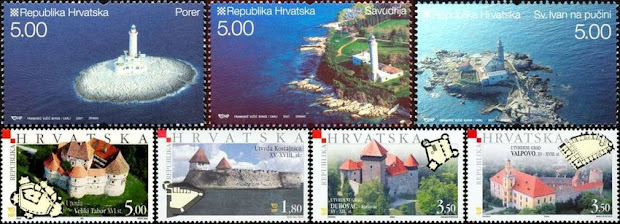With 4,5 million inhabitants Croatia is a small market. And it is getting smaller. Over the last few years, Croatia has witnessed an annual natural increase of about -10.000 (minus ten thousand). That's a quarter of Dubrovnik's population. If nothings changes, the Slovenes will outnumber the Croats in the future.
The Croatian population is now about the size of Ireland's. That is probably they only thing the two countries have in common. Ireland is booming, dynamic, thriving. Croatia, on the other hand, is slowly dying. Recent research shows Croats are among the most pessimistic peoples in the world. One out of four well educated young people leaves the country. The Croatian economy takes a bottom spot in European competitiveness and liberty. People take loans to go skiing and use credit cards for daily shopping. Croatia's internal and external debt is staggeringly high. How long can this go on? All
ingredients for a major crisis seems present, yet not much has happened. It's a miracle. It's got to go wrong one day.
I got into this pessimistic mood when I saw the (domestic)
bestsellers top-20 in
Jutarnji list. The bestselling book of 2008,
Naš čovjek na terenu, written by Robert Perišić, sold 1904 copies. Only ten books broke the magic number of 1000 copies. Not more than 484 buyers were needed to make Drago Britvić the 20th best selling domestic author of Croatia.

Is it safe to say that the Croatian literary scene is dead? Even a world famous Croatian author as Slavenka Drakulić sold no more than 1601 copies of her
Frida ili o boli (translated as
Frida's bed) which won her the second place on the ranking. I wonder if the situation in other ex-Yugoslav republics is better or worse.
Foreign non-fiction is much
more popular. The best sold book (20203 copies) is Rhonda Byrne's
The Secret. As
The Secret is new to me, I quote from Wikipedia: "The Secret is a book that presents what is claimed to be a centuries-old technique of the Law of Attraction, which in essence is the power of an individual's positive thinking to change and influence outcomes in their lives. The book claims that by using the "Laws of Attraction", an individual can become wealthier, healthier, and happier. The "Laws of Attraction" are the "secret" that the title of the book suggests to the reader. The book claims that the secrets outlined in the book have been known by famous and influential people for centuries, but that they have conspired to keep these secrets hidden from the general public for their own benefit."
Unbelievable that such crap sells better than the combined top-20 of literary authors in this country. I suddenly understand why Slavenka Drakulić and Dubravka Ugrešić live abroad.















